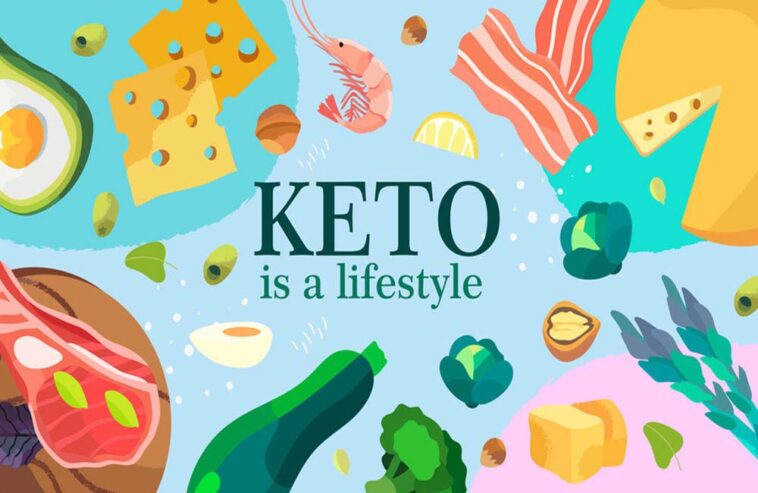A vegan ketogenic or vegan keto diet is a diet high in fat, low in carbs, and moderate in protein diet that is touted for its powerful weight loss effects and overall health benefits.
In other words, the vegan ketogenic diet significantly restricts carbohydrate intake and only allows plant-based foods. It is high in fat, contains adequate amounts of protein, and does not include any animal products.
As we all know, vegan diets are free from animal products, which means they tend to be relatively high in carbohydrates. As a result, following a ketogenic diet can be more difficult for vegans. However, with careful planning, it can be achieved a vegan ketogenic diet.
Whether for health, ethics, or the environment, a growing number of consumers are choosing vegan or plant-based lifestyles, eliminating all meat and animal products from their diet.
We are not here to pass any judgment on people who go vegan or not, but to let you know that it is possible to combine vegan and keto diets and get the most out of both lifestyles.
Ketogenic diets are often associated with foods of animal origin, this way of eating can be adapted to plant-based eating plans. Since vegan diets exclude all animal products, it is more difficult to eat low carbohydrates. However, with careful planning, vegans can reap the potential benefits of a ketogenic diet.
First, let’s be honest, it can be challenging to stick to a keto diet, without common fats like dairy, meat, and eggs. This places additional restrictions on the existing ones.
But, especially for those of you who are knowledgeable and well-prepared, it is something that can certainly be achievable and sustainable.
Limit carbohydrate intake of your vegan keto diet
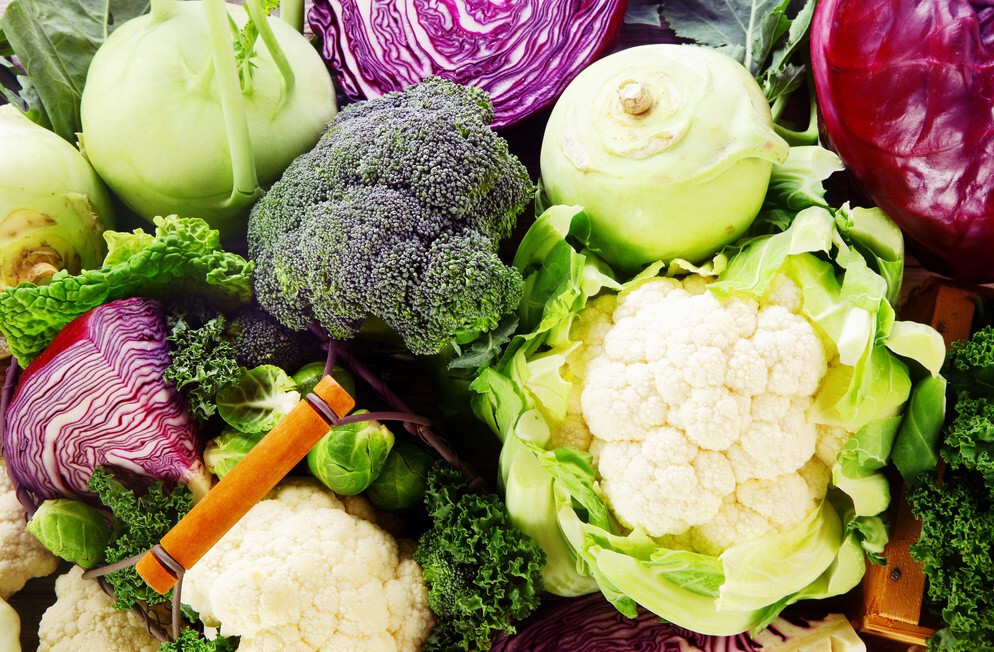
The basic guidelines for a vegan ketogenic diet start here, the macronutrient ratios for this diet are roughly:
- Fat: 55–60%
- Protein: 30–35%
- Carbohydrates: 5 to 10%
Total carbohydrate consumption should be strictly limited to 20 – 35 grams or less per day, and all meat, fish, dairy, eggs, and other animal products should be eliminated from your diet.
For people who consume 2,000 calories a day, that equates to a carbohydrate intake of just 25 to 50 grams (g).
When the body doesn’t have enough carbohydrates to use for energy, it goes into a state of ketosis where it has to burn fat for energy. Many people follow this diet to lose weight and reduce total body fat.
Vegetables for the vegan keto diet

Eat lots of low-carb vegetables.
- All kinds of mushrooms
- Green leafy vegetables:
-
- Spinach
- Kale
-
- Veges above ground, including:
-
- Broccoli
- Cauliflower
- Cabbage
- Brussels sprouts
- Zucchini
- Cucumber
- Peppers
-
- Algae, including:
-
- Nori
- Algae
- Dulse
-
- Other ketogenic plants including:
-
- Avocados
- Berries
- Walnuts
- Seeds
-
- Fermented foods, including:
-
- Kimchi
- Sauerkraut.
- Tempeh
-
This is consistent with any type of ketogenic diet.
Plant-based fats
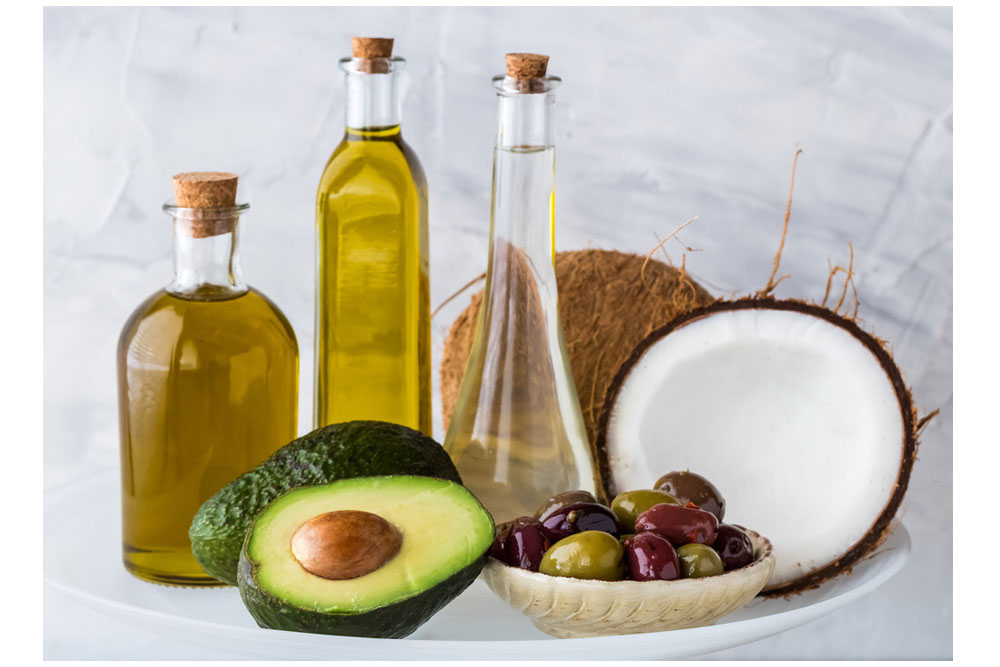
Now for the trickiest part:
You should get at least 70% of your calories from vegetable fat. Where other people may turn to sour cream, ghee, bacon, and lard to add fat to food, you need to look elsewhere.
Many monounsaturated fats, including:
- Olive oil
- Avocado oil
- Coconut oil
- Sustainably sourced red palm oil
- Medium-chain triglyceride oil (MCT)
- Macadamia nut oils
They are completely vegetable. It will rely heavily on these vegetable fats in most of your cooking.
Vegan ketogenic diet dairy alternatives
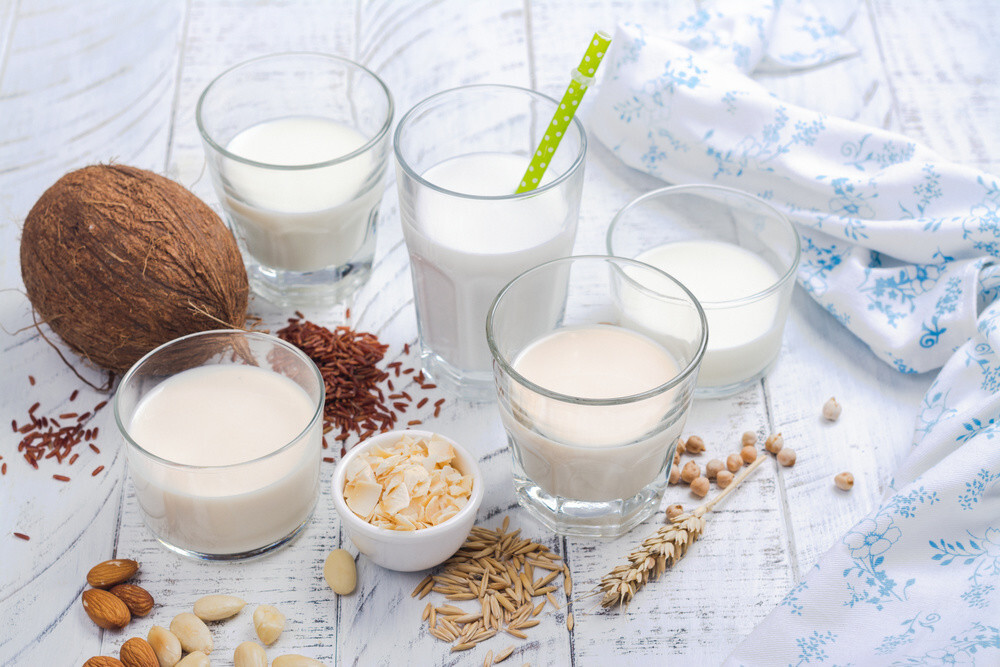
There are plenty of high-fat dairy alternatives too – we see new ones on grocery store shelves every week!
- Unsweetened coconut-based yogurt,
- Coconut cream,
- Vegan butter and cheeses.
- Nut butter
- Soy milk
If you’re avoiding soy, there are many nut-based products, such as cashew-based cream cheese, that are relatively low in carbs and taste great.
When you buy these items, be sure to read the labels to make sure you don’t get any extra added sugar, hidden carbs, or unhealthy ingredients like hydrogenated oils.
Egg replacements
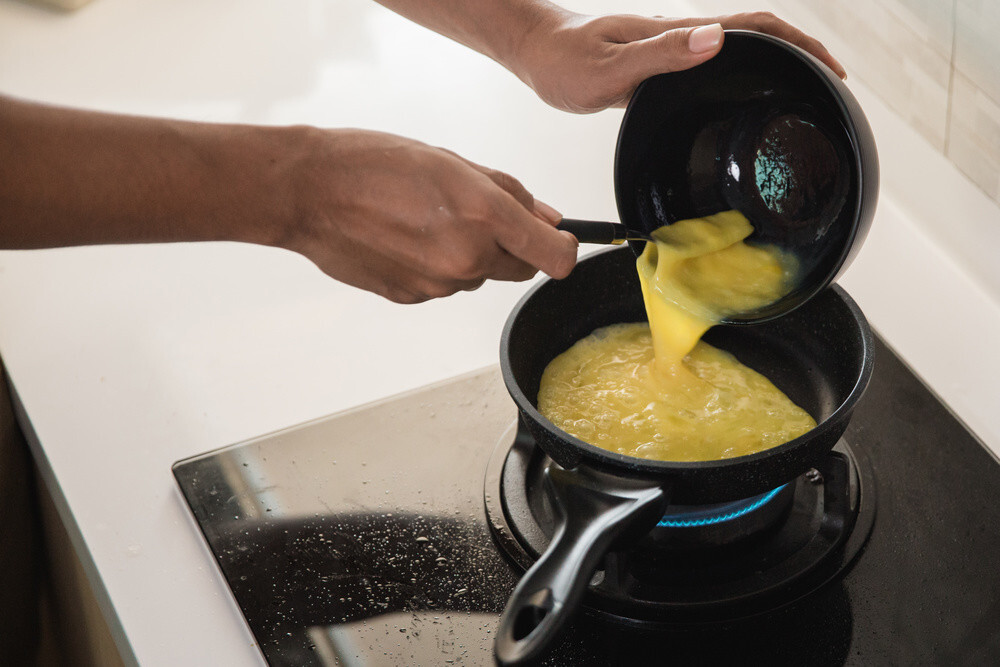
Vegan “eggs” are also becoming a more common commercial product. Some vegan whole egg replacements have a pretty convincing taste and texture that can be used to bake keto biscuits, muffins, and cakes.
Some can even be stirred or made into tortillas! For baking, you can also try blended silky tofu or a mixture of ground flaxseed and water as egg-like binding agents. The only real drawback is that
Protein
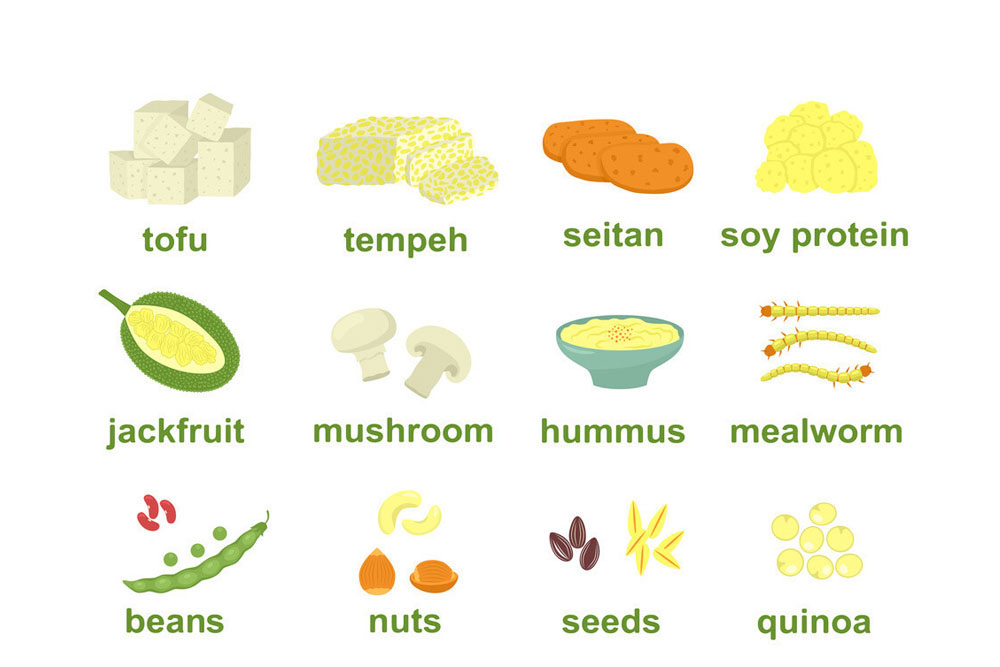
When it comes to protein, aim for 25% of your calories to come from plant-based protein. Most vegans get this protein from beans, lentils, and peas, which are off-limits on the ketogenic diet due to their high carbohydrate content. Instead,
Vegan meats like,
- Tempeh
- Tofu
- Seitan
- Soybean
- Natto
While these meat substitutes are often high in protein and fairly low in carbohydrates, some are marinated in sauces that contain added sugars and carbohydrates. Opt for products with the simplest ingredients, the lowest carbohydrate content, and some fat or protein in each serving.
Vegan protein powder, unflavored to add to dishes and flavored for smoothies, can be another part of your nuts and the seeds are a good choice too – just be sure to watch their carb content as some contain an Impressive amount of protein, like pumpkin seeds, are also pushing the carb limit.
Vegan ketogenic diet daily meal ideas
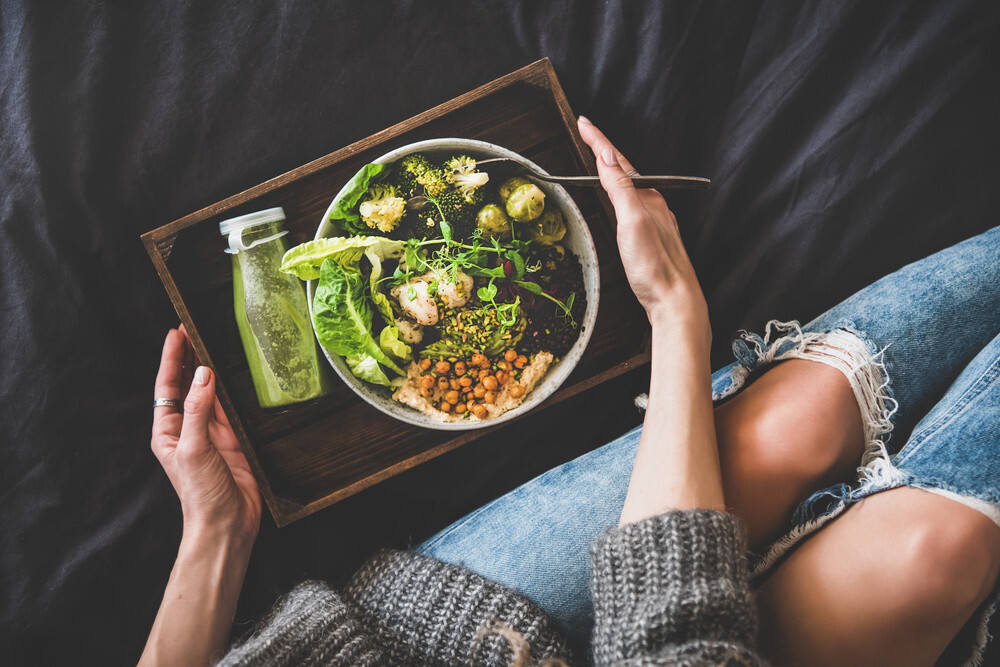
A day in the life of someone on a vegan keto diet might look like this: for breakfast, a creamy vegan keto porridge made with coconut flour, flax, and protein powder.
For lunch, try a caramelized onion salad with arugula and vegan cheese, and for dinner, serve a robust red coconut curry, packed with green vegetables and enriched with coconut cream. For dessert, a dairy-free chocolate floss cake hits the spot.
Season your food with different herbs and spices
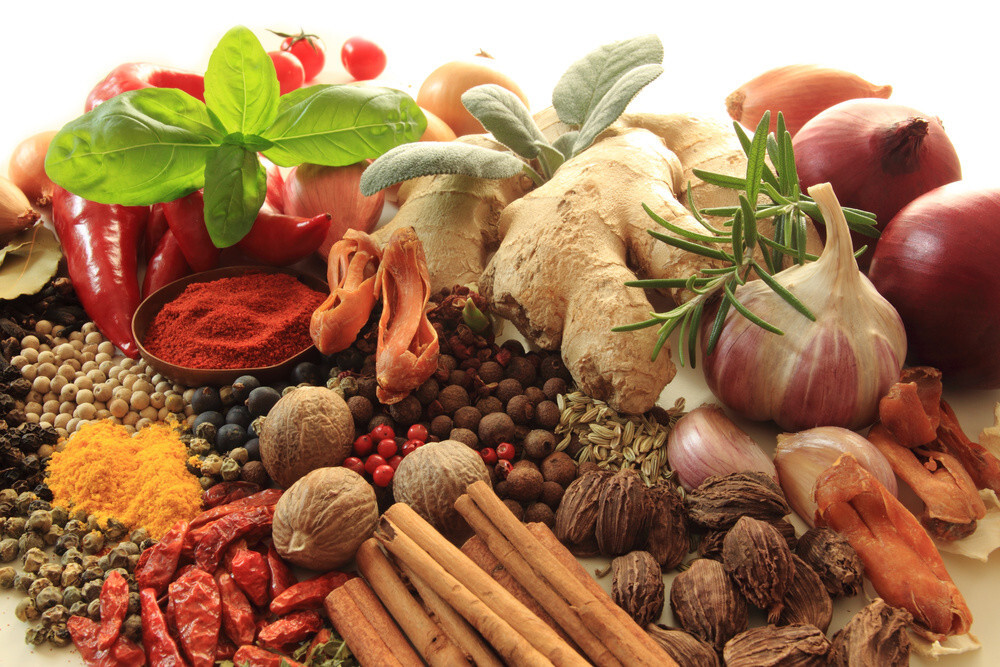
Cooking with herbs and spices can help increase the variety in a vegetarian diet. Plus, they are an additional source of micronutrients and provide very little net carbohydrates.
In addition to the more common ones like basil, rosemary, and cinnamon, experiment with some you haven’t tried as well. You may find some new favorites!
A person on a ketogenic diet devoid of animal foods should avoid vegan foods high in carbohydrates, including:
- Starchy vegetables, including:
-
- Carrots
- Corn
- Potatoes
- Sweet potatoes
- Parsnips
- Peas
- Beet
- Squash
-
- Grains and starches, including:
-
- Bread
- Oats
- Quinoa
- Pasta
- Rice
- Baked goods
- Breakfast cereals
-
- Legumes, including:
-
- Beans
- Chickpeas
- Lentils
-
- Almost all fruits and fruit juices, except avocado and limited amounts of berries
- Sugary foods and drinks, including:
-
- Maple syrup
- Agave syrup
- Soda
- Juice
- Barbecue sauce
- Sport drinks
-
- Processed and packaged foods
- Alcohol
- People on a vegan ketogenic diet will also avoid all animal products, including:
-
- Meat
- Fish
- Eggs
- Jelly
- Honey
-
- dairy, including:
-
- Cheese
- Milk
- Yogurt
-
Staying vegan keto diet long-term
It is possible to be keto and vegetarian. The biggest problems may be a lack of variety and meeting your nutritional needs regularly without eating meat or seafood.
In conclusion, choosing foods rich in key nutrients, experimenting with different vegetable and protein combinations, and using a wide range of herbs and spices can help you create a vegan keto diet that is a healthy, sustainable, and enjoyable lifestyle.
So those are our beginners’ guide to the vegan keto diet.
Did you enjoy vegetips’ “beginners’ vegan keto diet” article? Then hit like and share the article with your friends.
For more articles like this, click or tap on the related articles.
Thanks for reading!
So we will see you in our next article.



